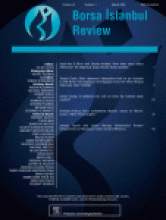
Abstract
Much research has been undertaken in the Efficient Market Hypothesis (EMH) over the preceding two decades. With Asian countries emerging as a global powerhouse in terms of regional economics, the interest in their stock markets has picked up recently. Asian markets traditionally comprised of many emerging markets are generally assumed to be more volatile and speculative in nature. Based on this crux, we focus specifically on the response of these markets efficiency to major crisis. In recent years, the Asian markets have experienced a phenomenal boom in attracting foreign capital inflow, with Singapore evolving into a global financial hub in terms of banking and financial services. Scepticism and cautious nature raises the question of whether these stock markets are efficient enough for further investment and development. Our study is unique in nature, as we focus on the efficiency of these market in response to crisis periods, comparing it with their pre-crisis period, both in shorter term of 1 year as well as longer term of 5 years post and pre crisis period. Taking Malaysia, Indonesia, Singapore and South Korea owing to their economic and financial development, we use MF-DFA to derive efficiency measure for comparative analysis with its own past. The findings put forth a notion of generally a deteriorating and negative impact of the Asian financial crisis, while the sub-prime crisis impact varies based on the economic structure of the economies. The findings concur with the mainstream literature and similar studies for other countries and region.
Keywords
East Asian; Efficiency; Multifractal; Stock markets
